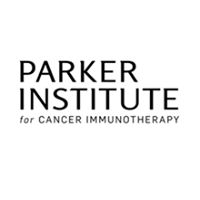预约演示
更新于:2025-12-17
SER-401
更新于:2025-12-17
概要
基本信息
在研机构- |
最高研发阶段无进展临床1期 |
首次获批日期- |
最高研发阶段(中国)- |
特殊审评- |
登录后查看时间轴
关联
1
项与 SER-401 相关的临床试验NCT03817125
A Multicenter Phase 1b Randomized, Placebo-controlled, Blinded Study to Evaluate the Safety, Tolerability and Efficacy of Microbiome Study Intervention Administration in Combination With Anti-PD-1 Therapy in Adult Patients With Unresectable or Metastatic Melanoma
This study is designed to evaluate the safety and tolerability of treatment with oral microbiome study intervention (SER-401) or matching placebo in combination with anti-programmed cell death 1 (anti-PD-1) therapy (nivolumab) in participants with unresectable or metastatic melanoma. The study also intends to assess clinical outcomes, the impact of microbiome study intervention administration on the microbiome profile, and its association with clinical and immunological outcomes.
开始日期2019-01-28 |
申办/合作机构 |
100 项与 SER-401 相关的临床结果
登录后查看更多信息
100 项与 SER-401 相关的转化医学
登录后查看更多信息
100 项与 SER-401 相关的专利(医药)
登录后查看更多信息
2
项与 SER-401 相关的文献(医药)2024-07-01·Cancer discovery
Randomized Placebo-Controlled, Biomarker-Stratified Phase Ib Microbiome Modulation in Melanoma: Impact of Antibiotic Preconditioning on Microbiome and Immunity
Article
作者: Weiner, Brian ; Hamid, Omid ; Henn, Matthew R. ; LaVallee, Theresa ; Peterson, Christine B. ; Tetzlaff, Michael T. ; Walsh, Emily ; Boland, Genevieve M. ; Ajami, Nadim J. ; McChalicher, Christopher ; Fairchild, Justin ; Sullivan, Ryan J. ; Wong, Matthew C. ; Seo, Yongwoo David ; Hicks, Nathan ; Wortman, Jennifer R. ; Cabanski, Christopher R. ; Spencer, Christine N. ; Burton, Elizabeth M. ; Tawbi, Hussein A. ; Loo, Christopher P. ; Alayli, Farah A. ; Glitza, Isabella C. ; Grossmann, Kenneth F. ; Aunins, John ; Ott, Patrick A. ; Damania, Ashish ; Densmore, Julie ; Gautam, Shikha ; Wargo, Jennifer A.
Abstract:
Gut-microbiota modulation shows promise in improving immune-checkpoint blockade (ICB) response; however, precision biomarker-driven, placebo-controlled trials are lacking. We performed a multicenter, randomized placebo-controlled, biomarker-stratified phase I trial in patients with ICB-naïve metastatic melanoma using SER-401, an orally delivered Firmicutesenriched spore formulation. Fecal microbiota signatures were characterized at baseline; patients were stratified by high versus low Ruminococcaceae abundance prior to randomization to the SER-401 arm (oral vancomycin-preconditioning/SER-401 alone/nivolumab + SER-401), versus the placebo arm [placebo antibiotic/placebo microbiome modulation (PMM)/nivolumab + PMM (NCT03817125)]. Analysis of 14 accrued patients demonstrated that treatment with SER-401 + nivolumab was safe, with an overall response rate of 25% in the SER-401 arm and 67% in the placebo arm (though the study was underpowered related to poor accrual during the COVID-19 pandemic). Translational analyses demonstrated that vancomycin preconditioning was associated with the disruption of the gut microbiota and impaired immunity, with incomplete recovery at ICB administration (particularly in patients with high baseline Ruminococcaceae). These results have important implications for future microbiome modulation trials.Significance: This first-of-its-kind, placebo-controlled, randomized biomarker-driven microbiome modulation trial demonstrated that vancomycin + SER-401 and anti–PD-1 are safe in melanoma patients. Although limited by poor accrual during the pandemic, important insights were gained via translational analyses, suggesting that antibiotic preconditioning and interventional drug dosing regimens should be carefully considered when designing such trials.See author Yongwoo David Seo discuss this research brief, published simultaneously at the AACR Annual Meeting 2024: https://vimeo.com/932607668/63addff7fc
2018-03-01·Nature medicine1区 · 医学
Gut checkpoint: A rising cancer treatment may get a boost from intestinal bacteria
1区 · 医学
Article
作者: Azvolinsky, Anna
The completion of the Human Microbiome Project in 2012 created a blueprint of what a balanced microbial ecol. looks like and a roster of the organisms that call the human body home.Several startup companies began working on packaging microbes as oral medicines to treat diseases and disorders ranging from irritable bowel syndrome to epilepsy and diabetes, all of which have been linked to imbalances in gut microbes.So far, some of the best success in microbial manipulation has been with FMTs to treat Clostridium difficile infection.FMT is still an investigational therapy for any disease, with the FDA still figuring out how to regulate this form of probiotic.Early transplants were unprocessed, homogenized stool delivered either via an enema or endoscope.In a newer version of FMT, the microbiota portion of the stool is separated out, packaged and swallowed as a pill.Treating cancer is the next frontier for probiotics and FMT.The idea is to partner gut microbes with checkpoint inhibitors to improve the efficacy of the latter.Wargo, along with the Parker Institute for Cancer Immunotherapy in California, is working with Cambridge, Massachusetts-based Seres Therapeutics to test an orally delivered cocktail of bacterial spores, SER-401, in a clin. trial.Wargo′s profiling of the gut microbial composition of patients has, in part, guided the species chosen to be included in SER-401.According to Wargo, the metastatic melanoma trial will randomize patients, all of whom will receive anti-PD-1 therapy, to one of three treatment arms: treatment with SER-401, placebo, or an FMT, either from a healthy donor with a favorable microbiota or from a cancer patient whose tumors all shrank following the same anti-PD1 therapy.Seres is sourcing its spore forming bacteria from the stools of heavily prescreened, healthy individuals."We believe that this is an issue of ecol. and that, to have an influence, we need to deliver a consortia of microorganisms," says David Cook, Seres chief scientific officer.The trial is slated to start later this year.In another trial planned to begin this year, Gajewski has partnered with Cambridge-based Evelo Biosciences to test whether a pill containing a freeze-dried single Bifidobacterium strain can improve the efficacy of a checkpoint blockade antibody.The approach builds off of the fact that he not only saw a benefit of Bifidobacterium in mice with melanoma tumors, but also that his group has found a higher abundance of Bifidobacterium in cancer patients correlated with a better response to immunotherapy.Zitvogel is also working on encapsulating bacteria to deliver to cancer patients receiving checkpoint inhibitors and is the cofounder of a biotech called EverImmune, but she has yet to disclose specifics or a trial plan.Meanwhile, other startups are also working on concentrated, bacteria-filled pills.Cambridge, Massachusetts-based Vedanta Biosciences plans to start a first-in-human trial in 2019 to treat cancer using lab-grown bacterial strains originally identified in the gut of healthy individuals."The gut microbiota has an important role in infectious disease.I think the next frontier is the gut microbiota in cancer, autoimmune and allergy disorders," says Bernat Olle, Vedanta′s CEO.
17
项与 SER-401 相关的新闻(医药)2025-08-14
·今日头条
2025年6月,张先生和家人最担心的情况发生了,早期肠癌手术后半年熟悉的腹痛症状再次出现,检查结果显示:原发大肠病灶切除区域出现复发,并出现局部腹膜转移!
放眼全球,结直肠癌 (CRC)已成为第三大常见恶性肿瘤,也是癌症相关死亡的第二大常见原因,目前转移性肠癌以化疗和靶向治疗方案为主,疗效不佳。而对于一部分发生肝转移的患者来说,根治性手术是公认的最佳治疗方法,但仅有20%~40%的患者存在手术机会!
更糟糕的是,一些研究显示肠癌术后复发率高达60%-80%,且复发通常发生在术后2年内。因此,即便成功手术可以根除肠癌的所有痕迹,但并不能保证存在微转移。每一次刺痛、排便不规律或疼痛的发作都可能提醒你癌症可能卷土重来了。
警惕肠癌复发的7大征兆!
根据《外科治疗与研究年鉴》发表的一项研究,肝脏是早期复发的最常见部位(40.5%),而晚期复发的最常见部位是肺部(32.8%)或局部区域(28.1%)。因此在手术后要警惕以下7大常见的复发征兆:
排便习惯改变,如腹泻、便秘或大便变窄,持续数天以上
有排便困难的感觉,但排便后不适感没有缓解
直肠出血
大便呈深色或带血
痉挛或腹部疼痛
虚弱和疲劳
体重意外减轻
手术后,复诊频率每三个月一次。因为 60% 至 80% 的结肠直肠癌复发会发生在原发恶性肿瘤发生后的两年内。一定要高度警惕!
2025年四大新型免疫疗法清除全身癌细胞
值得振奋的是,2025年,全球癌症疫苗,CAR-T等全新免疫疗法研发遍地开花,并取得了鼓舞人心的临床数据,打一针终结肠癌复发的时代已经到来!
01
“一针”改写复发厄运?全球首批肠癌疫苗受试者成功接受治疗
近期,多名肠癌患者在接受手术切除后,成为了新型癌症疫苗的首批试验者,并激动地表示自己能参与这项研究“无比幸运”。
2月4日世界癌症日,卫生部内阁秘书 Jeremy Miles MS 访问了位于卡迪夫的 Velindre 癌症中心,会见了 L女士,她是威尔士第一位
接受旨在对抗她自己特定癌症的试验性疫苗的患者,这是由威尔士健康与护理研究中心支持的一项开创性新研究的一部分。
2023年,
英国伯明翰43 岁的S先生确诊为恶性肠癌,为了尽快控制病情,手术切除了大部分结肠,但医生告诉他,癌症并没有这么容易打败,他面临着很高的复发风险,这令他和家人的生活笼罩在复发的阴霾下暗无天日,惶惶不安。幸运的是,伯明翰伊丽莎白女王医院(QE)开展了一项癌症疫苗临床试验,让他迎来了改写命运的契机。成为了新型癌症疫苗的首批试验者
这款疫苗由英国癌症研究院与制药公司 BioNTech联合研发,旨在探究疫苗能否帮助训练人体免疫系统,预防癌症复发 。它采用了与新冠疫苗类似的 mRNA 技术,为每位患者量身定制专门针对其特定癌症的治疗方案 。
疫苗就如同一张
“通缉令”
,能够揭露那些善于隐藏在体内、日后可能卷土重来的癌细胞 。人们希望通过疫苗激活免疫系统,使其能够主动寻找并消灭任何残留的癌细胞,
提高未来无癌生存的几率
。
参与试验的患者激动地说:“如果没有疫苗,我只能等待癌症复发,当接受疫苗注射时,我感觉在参与改写医学史。”
两年的观察足以判断疗效。五年后,如果像S先生和L女士这样的患者仍然没有癌症,那么我们就有了一种潜在的、有希望的新疗法。
02
实现2年无复发!全球首个针对肠癌肝转的CEA CAR-T终结复发噩梦!
2025年6月在ASCO会议上,一款国研新型靶向CEA CAR-T细胞制剂延长结直肠癌肝转移患者根治术后无复发生存期的最新临床试验研究结果公布,引起巨大轰动!特别值得一提的是,这是
全球首个针对结直肠癌肝转移术后患者的抗 CEA CAR-T 疗法试验
(NCT05240950),有望推动CAR-T细胞治疗在实体瘤领域新的临床突破,终结复发噩梦!
这项针对结直肠癌肝转移术后患者的抗 CEA CAR-T 细胞疗法研究,在入组标准上明确:仅纳入术后达到无疾病状态(即影像学和临床检查未发现肿瘤),但
癌胚抗原(CEA)阳性率≥30%
的患者 —— 这类患者往往存在潜在微小残留病灶,是复发的高危人群。
研究采用剂量递增设计,为患者分别输注
1×10⁶/kg、3×10⁶/kg、6×10⁶/kg
三个梯度的抗 CEA CAR-T 细胞,核心目标是验证安全性与抗复发效果。
从 2021 年 12 月至 2024 年 12 月的研究周期内,48 例受试者经过筛选后,12 例最终接受了细胞输注(其中 1×10⁶/kg 组 2 例、3×10⁶/kg 组 2 例、6×10⁶/kg 组 8 例),另有 3 例输注前已复发的患者在充分知情后仍选择接受治疗。
结果显示:
9 例输注前无复发的患者中位随访时间达 23 个月,其中 5 例出现复发,但 6×10⁶/kg 高剂量组展现出显著优势:4 例患者分别维持了 5 个月、7 个月、10 个月及 15 个月的无复发生存(目前随访仍在持续),且该剂量组中
57.14% 的患者在根治术后两年内保持无复发状态
。此外该疗法在术后患者中的安全性可控,为后续临床应用奠定了重要基础。
对比结直肠癌肝转移术后 75% 的两年内复发率,这一数据意味着高剂量抗 CEA CAR-T 细胞输注能
将复发风险降低近一半
,尤其对术后 CEA 阳性的高危人群,有望成为延长无复发生存期的突破性选择。
想寻求
CAR-T、TCR-T、TIL
等细胞疗法及其他国内外治疗新技术帮助,且经济条件允许的情况下可提交病历至全球肿瘤医生网医学部申请。
03
复发率降低38%!新型MUC1 肽癌症疫苗为早期结肠癌患者带来长生存希望
近期,一项极具开创性的针对 MUC1 肽疫苗在结肠腺瘤患者中的深入研究取得突破性进展,让早期患者患者远离复发噩梦。
这项癌症疫苗的多中心、双盲、安慰剂对照随机试验聚焦于 40 至 70 岁、确诊为晚期腺瘤的患者群体。研究人员精心规划疫苗接种策略,分别在第 0 周、2 周、10 周为患者接种 MUC1 肽疫苗,并在第 53 周进行加强注射,同时将腺瘤复发情况的评估节点设定在随机分组 1 年之后,旨在精准评估 MUC1 肽疫苗能否成功激发人体免疫反应,并进一步探究其对结肠腺瘤复发的潜在影响。
共有 53 名符合条件的患者接受了 MUC1 肽疫苗接种,50 名参与者则被分配至安慰剂组。
结果显示:
在成功产生免疫反应并接受加强注射的受试者中,腺瘤复发率较安慰剂组显著降低38% !
在 52 名 MUC1 疫苗接种者中,多达 13 名(占比 25%)在第 12 周时 MUC1 IgG 水平显著升高至基线的
2 倍及以上
,而安慰剂组在该时间点无一人出现类似变化,这一结果强有力地证实了
MUC1 肽疫苗能够在部分患者体内成功引发特异性免疫反应
。
04
无病生存从9个月飙升至2年!免疫王炸DC疫苗助结肠癌患者生存期翻倍,复发风险锐减
近期,《免疫肿瘤学杂志》发布的震撼研究(NCT01348256),用树突状细胞(DC)疫苗为抗癌战场投下“重磅炸弹”,精准狙击微小残留病灶,彻底扭转战局!
项临床研究(NCT01348256),共纳入19例可手术切除的结肠腺癌肝转移患者,经新辅助化疗、肝叶/肝段切除术及辅助化疗后,选取15例切缘无病的患者按1∶1比例随机分组。其中一组进行常规观察;另一组则接受基于自体CD14+单核细胞制备的树突状细胞(DC)疫苗治疗——该疫苗通过在GM-CSF与IL-4环境中培养7天,诱导单核细胞分化为DC,采用两个疗程、每日四次皮内接种。研究团队以每12周(11-14周浮动)一次腹部CT扫描进行随访,中位随访时长达42.58个月。
结果显示:
DC疫苗组中位无病生存期(DFS)长达25.26个月(≈2.1年,95%CI:8.74-nr)
,
显著优于观察组的9.53个月(95%CI:5.32-18.88)
(详见下图),且
疫苗组患者的复发次数更少、复发时间显著延迟
,证实了DC疫苗在延长患者无病生存期方面的显著疗效。
三大调节方式,远离肠癌复发和转移
除了预防复发的癌症疫苗等全新免疫疗法值得期待,对于肠癌患者和家属来说,从确诊到治疗再到康复过程中的每一步都至关重要。除了接受临床正规的治疗,如手术、放疗、化疗等,这是抗击癌症的主力军,作为一个聪明的患者,还应该通过一些调节方式“自救”,我们才能在这场与癌症的较量中大获全胜!
01
饮食营养调节
忌口的有:
一旦明确诊断结直肠癌后要尽量不吃红肉(猪、牛、羊肉),减少精炼糖的摄入(如白糖)。
推荐补充:
维生素D3 5000单位/天,益生菌(Probiotics)2粒/天,以及两份量(two serving)的Tree Nuts/周。原文链接:
超9万人大型研究证实!维生素D降低50%结直肠癌风险!最佳补充方法都在这了!
02
重启自身强大免疫力
肿瘤患者要时刻注意自己的免疫状况。通常可以自测,凭自己感觉,如是否
容易感冒、发热、特别容易感染
等,当然可以做一些
免疫力的检查
。相关阅读:为什么癌症患者都需要做免疫功能实时监测?
对于免疫功能低下或异常的患者,临床医生会建议注射胸腺肽类的药物、干扰素,恢复免疫试别功能和恢复免疫杀伤功能的细胞免疫回输等等。
过继性免疫细胞治疗技术是通过采集人体自身免疫细胞,经过体外培养,使其数量扩增成千倍增多,靶向性杀伤功能增强,然后再回输到患者体内, 从而来杀灭血液及组织中的病原体、癌细胞、突变的细胞。如免疫细胞NK,DC,T细胞的临床辅助治疗已经过了大量的临床研究。
晚期直肠癌肝转移的M先生肠部病灶手术后每3周接受一次用自己的免疫细胞培养的自体CIK细胞或自体NK细胞静脉回输,同时联合化疗。非常幸运的是,治疗后CT检查显示肝脏病灶竟然缩小了47%,达到了部分缓解(PR)。2020年底,M先生成功的进行了肝转移瘤切除术,术后为了清除身体里面残存的癌细胞,又接受了4个周期自体CIK/NK细胞联合6个周期化疗方案,让M先生万分惊喜的是,肿瘤标志物癌胚抗原均恢复正常范围内,治疗后生活质量改善,随访及增强CT检查未见肿瘤转移及复发!M先生激动地说,“2020年,我达到了NED状态——没有疾病迹象,并且已持续长达40个月!”目前M先生已经从癌症晚期重新回到了正常生活!
需要注意的是,目前NK细胞疗法在全球范围包括中国、美国、英国在内的许多国家正在进行临床研究,暂未上市。想接受联合方案且经济条件允许的患者,可以提交病历至全球肿瘤医生网医学部进行评估
03
肠道菌群调节
国际上已经有众多“特定”菌株联合免疫疗法的研究:1.BMC128是一种经过“精准设计的微生物群”口服型胶囊。作为一种活细菌产品,包含了4种独特的细菌菌株,这些微生物可以帮助恢复患者微生物群落的多样性和特定功能,从而提高他们对免疫疗法的反应。正在与纳武单抗联合用于非小细胞肺癌 (NSCLC)、黑色素瘤和肾癌患者验证联合治疗的效果。2.Vedanta Biosciences 开发了 VE800,这是一种11 种细菌菌株的纯化、冷冻干燥混合物,可以激活产生干扰素-γ 的细胞毒性 T 细胞 。它正在与 CPI 纳武单抗联合用于晚期结直肠癌、胃癌和黑色素瘤患者的测试。3.美国马萨诸塞州剑桥的Seres Therapeutics正在测试另一种细菌联合候选药物 SER-401,用于与 nivolumab 联合治疗转移性黑色素瘤患者。SER-401 包含从健康的人类供体粪便中分离和纯化的菌株,将在 8 周内每天给予,从 CPI 开始之前开始并继续进行。4.中国的研究人员对至少二线系统治疗失败的微卫星稳定型(MSS)晚期结直肠癌患者进行了创新性治疗,通过“三联疗法”(肠道菌群移植 + PD-1单抗 + 靶向药)有效延长难治型结直肠癌患者的生存期,疾病控制率高达95%!
最后希望大家都能找到适合自己的抗癌方式,早日康复!
免疫疗法疫苗细胞疗法临床研究
2025-08-14
·今日头条
你知道吗?我们的身体里居住着一支
“万亿级隐形战队”
—— 人体微生物群!它们的总数量甚至超过人体细胞总和。这些肉眼看不见的 “居民” 并非简单的 “寄生者”,而是与人体共生共荣的 “生命伙伴”,时刻参与着消化、代谢乃至免疫调节等关键生命活动!
近年来的医学研究更是揭开了一个惊人真相:这支 “隐形战队” 与癌症免疫治疗的成败息息相关!肠道微生物群通过与免疫系统的精准 “互动”,直接影响着免疫检查点抑制剂(ICI)的疗效。正因如此,调节肠道微生物群已成为实体瘤治疗的全新突破口。
如今,科学家们已找到激活这支 “战队” 的钥匙:
用益生元为有益菌 “补充粮草”,靠益生菌直接 “增援兵力”,或通过粪便微生物移植(FMT)重建健康的肠道微生态。
这些策略在接受 ICI 治疗的晚期实体瘤患者中已显现出积极疗效,让肠道里的 “隐形力量” 成为对抗癌症的重要盟友。
肠道菌群:人体的 “第二基因组”
人体肠道内栖息着数以万亿计的微生物,它们构成了一个复杂而精妙的生态系统,被称为肠道菌群。这些微生物的基因数量总和,远远超过人类自身的基因数量,因此肠道菌群也被形象地称为人体的 “第二基因组”。长期以来,肠道菌群被认为主要参与食物消化和营养吸收,但越来越多的研究表明,它们在人体健康的诸多方面,尤其是免疫系统调节和癌症治疗中,发挥着至关重要的作用。
Science:粪便微生物群移植克服了黑色素瘤患者对抗PD-1治疗的耐药性
2021年,发表在重磅国际期刊《Science》上的首次人体临床试验证实了粪便微生物群移植 (FMT) 会影响转移性黑色素瘤患者对抗 PD-1 免疫疗法的反应。2018 年 6 月至 2020 年 1 月期间入组了 16 名黑色素瘤患者,其中15 名患者接受了 FMT 和派姆单抗治疗,结果显示15 名患者中有 3 名(20%)出现客观缓解(ORR),还有 3 名具有持续 > 12 个月的持久性病情稳定。这项研究表明,FMT 联合抗 PD-1 克服了部分 PD-1 难治性黑色素瘤患者对抗 PD-1 的耐药性。下面这位幸运的患者接受治疗后肿瘤迅速缩小。
Nature:生存期提升超400%!益生菌提升免疫治疗效果证据确凿
2022年2月,一项发表在国际知名期刊《Nature Medicine》上的文章首次证明了口服益生菌药物制剂能够改善癌症患者的肠道菌群稳态,并增强患者的免疫治疗反应。
结果显示,免疫治疗联合使用益生菌制剂CBM588,能够将无进展生存期(PFS)由2.5个月延长至12.7个月,提高近400%!极大了改善晚期肾癌患者的预后!
Nature:肠道菌群直接影响CAR-T细胞治疗效果
2022年3月,另一项关于肠道菌群的研究再次登顶《Nature Medicine》。研究表明,不同的血液肿瘤患者对CAR T 细胞疗法的反应可能截然不同,这竟然取决于他们肠道微生物组的组成。肠道菌群中特定细菌种类(即
瘤胃球菌、拟杆菌和粪杆菌
)丰度较高的患者更有可能对 CAR T 细胞治疗产生更好反应。
调节肠道菌群:开启癌症治疗新大门
既然肠道菌群对 ICI 疗效如此重要,那么能否通过调节肠道菌群来增强癌症治疗效果呢?答案是肯定的。目前,多种调节肠道菌群的策略已在临床研究中展现出令人鼓舞的潜力。
益生元:滋养有益菌的 “肥料”
益生元是一种不能被人体消化吸收,但能选择性地刺激肠道内有益菌生长和活性的物质,就像给有益菌提供了丰富的 “肥料”。研究发现,膳食纤维作为一种常见的益生元,对接受 ICI 治疗的晚期黑色素瘤患者具有积极影响。较高的膳食纤维摄入量可显著改善患者的无进展生存期,尤其是那些每天摄入超过 20 克膳食纤维且不服用益生菌的患者,疾病进展的风险明显降低。此外,地中海饮食也与接受 ICI 治疗的晚期黑色素瘤患者的良好预后相关,其中富含的益生元成分或许功不可没。一些天然物质也具有益生元的作用。例如,小鼠口服富含卡姆果的浆果后,肠道微生物组成发生改变,瘤胃球菌科和泽泻属的丰度增加,这两者都与 ICI 反应性相关。在一项研究中,两例对抗 PD1 有抵抗力的晚期黑色素瘤患者,在抗 PD1 再刺激中添加卡姆果提取物后,竟表现出了深度临床反应,为益生元在癌症治疗中的应用提供了新的思路。
益生菌:活的 “健康卫士”
益生菌是一类对人体有益的活微生物,它们就像肠道内的 “健康卫士”,帮助维持肠道菌群平衡,增强肠道屏障功能,调节免疫系统。在癌症治疗领域,越来越多的研究关注益生菌的应用。
一项回顾性研究发现,口服丁酸梭菌 MIYAIRI 588(CBM588)对接受 ICI 或化学免疫疗法全身治疗的非小细胞肺癌患者具有潜在益处。接受 CBM588 治疗的患者无进展生存期和总生存期更长。基于此,两项前瞻性随机试验将 CBM588 添加到肾细胞癌患者的标准治疗中,
结果显示
,实验组患者的无进展生存期明显延长,总体有效率也更高。这些结果表明,益生菌有望成为增强癌症免疫治疗效果的有效手段。
然而,并非所有的益生菌干预都能取得理想的效果。例如,SER-401 作为一种富含厚壁菌门的孢子基制剂,在一项 Ib 期试验中,与 nivolumab 联合使用时,实验组的客观缓解率低于安慰剂组。这提示我们,在选择益生菌用于癌症治疗时,需要谨慎考虑其种类、剂量和使用方式等因素。
粪便微生物移植:重建肠道菌群的 “神奇魔法”
粪便微生物移植(FMT)是一种将健康供体的粪便微生物转移到患者肠道内,以重建患者肠道菌群的治疗方法,就像给患者的肠道 “注入” 了健康的新生态系统。近年来,FMT 在癌症治疗领域的应用取得了令人瞩目的进展。
在晚期黑色素瘤患者中,两项 I 期试验评估了 FMT 联合抗 PD-1 再次挑战的安全性、可行性和活性。研究发现,FMT 来自先前接受过抗 PD-1 治疗并获得深度临床反应的供体,与 nivolumab 或 pembrolizumab 联合应用后,部分患者出现了疗效反应,甚至有患者达到了完全缓解。这表明,FMT 或许能通过改变肠道菌群,增强患者对 ICI 的敏感性,为那些对传统治疗耐药的患者带来新的希望。
FMT 在其他实体瘤治疗中也展现出潜力。在转移性非小细胞肺癌和肾细胞癌患者中,FMT 与 ICI 联合治疗的临床试验结果显示,患者的客观缓解率显著提高,超过了历史基准。此外,FMT 与抗 PD1 和抗血管生成 TKI 联合用于治疗肾细胞癌患者,可提高疗效并延长生存期。这些研究结果为 FMT 在癌症治疗中的广泛应用奠定了基础。
如何检测及调节肠道菌群检测
肠道菌群检测是精准检测之—,基于二代高通量基因测序技术(16SrDNA)精确反应人体肠道菌群种类、数量、结构,识别疾病风险及健康水平。通过肠道菌群检测的检测可以有效评估大部分的慢病风险和进展,甚至可提前对部分疾病进行预警。同时可以针对癌症患者人群,精确反映肠道菌群结构以及菌群平衡情况,个性化定制养菌、种菌的解决方案,平衡免疫系统,达到改善过敏及自体免疫、提升免疫细胞灭癌能力、防癌抗癌等功能。
未来展望:精准医疗与微生物组疗法的融合
未来,随着对肠道菌群与癌症相互作用机制的深入理解,我们有望实现基于微生物组的精准医疗。通过对患者肠道菌群的精准分析,医生可以为每位患者量身定制个性化的治疗方案,选择最适合的微生物组调节策略,如益生元、益生菌或 FMT,以最大程度地提高癌症治疗效果,同时减少不良反应。
此外,微生物组疗法还可能与其他新兴的癌症治疗技术,如基因疗法、细胞疗法等相结合,形成更强大的联合治疗方案,为癌症患者带来更多的生存希望。
肠道菌群调节作为一种新兴的癌症治疗策略,为我们打开了一扇全新的治疗大门。虽然前方仍有许多未知等待我们去探索,但每一项新的研究进展都让我们离战胜癌症的目标更近一步。相信在不久的将来,微生物组疗法将在癌症治疗领域发挥重要作用,为广大癌症患者带来福音。让我们共同期待那一天的到来!
本文为全球肿瘤医生网原创,未经授权严禁转载
免疫疗法微生物疗法临床研究细胞疗法
2025-07-29
·今日头条
2025年6月,张先生和家人最担心的情况发生了,早期肠癌手术后半年熟悉的腹痛症状再次出现,检查结果显示:原发大肠病灶切除区域出现复发,并出现局部腹膜转移!
放眼全球,结直肠癌 (CRC)已成为第三大常见恶性肿瘤,也是癌症相关死亡的第二大常见原因,目前转移性肠癌以化疗和靶向治疗方案为主,疗效不佳。而对于一部分发生肝转移的患者来说,根治性手术是公认的最佳治疗方法,但仅有20%~40%的患者存在手术机会!
更糟糕的是,一些研究显示肠癌术后复发率高达60%-80%,且复发通常发生在术后2年内。因此,即便成功手术可以根除肠癌的所有痕迹,但并不能保证存在微转移。每一次刺痛、排便不规律或疼痛的发作都可能提醒你癌症可能卷土重来了。
警惕肠癌复发的7大征兆!
根据《外科治疗与研究年鉴》发表的一项研究,肝脏是早期复发的最常见部位(40.5%),而晚期复发的最常见部位是肺部(32.8%)或局部区域(28.1%)。因此在手术后要警惕以下7大常见的复发征兆:
排便习惯改变,如腹泻、便秘或大便变窄,持续数天以上
有排便困难的感觉,但排便后不适感没有缓解
直肠出血
大便呈深色或带血
痉挛或腹部疼痛
虚弱和疲劳
体重意外减轻
手术后,复诊频率每三个月一次。因为 60% 至 80% 的结肠直肠癌复发会发生在原发恶性肿瘤发生后的两年内。一定要高度警惕!
2025年四大新型免疫疗法清除全身癌细胞
值得振奋的是,2025年,全球癌症疫苗,CAR-T等全新免疫疗法研发遍地开花,并取得了鼓舞人心的临床数据,打一针终结肠癌复发的时代已经到来!
01
“一针”改写复发厄运?全球首批肠癌疫苗受试者成功接受治疗
近期,多名肠癌患者在接受手术切除后,成为了新型癌症疫苗的首批试验者,并激动地表示自己能参与这项研究“无比幸运”。
2月4日世界癌症日,卫生部内阁秘书 Jeremy Miles MS 访问了位于卡迪夫的 Velindre 癌症中心,会见了 L女士,她是威尔士第一位
接受旨在对抗她自己特定癌症的试验性疫苗的患者,这是由威尔士健康与护理研究中心支持的一项开创性新研究的一部分。
2023年,
英国伯明翰43 岁的S先生确诊为恶性肠癌,为了尽快控制病情,手术切除了大部分结肠,但医生告诉他,癌症并没有这么容易打败,他面临着很高的复发风险,这令他和家人的生活笼罩在复发的阴霾下暗无天日,惶惶不安。幸运的是,伯明翰伊丽莎白女王医院(QE)开展了一项癌症疫苗临床试验,让他迎来了改写命运的契机。成为了新型癌症疫苗的首批试验者
这款疫苗由英国癌症研究院与制药公司 BioNTech联合研发,旨在探究疫苗能否帮助训练人体免疫系统,预防癌症复发 。它采用了与新冠疫苗类似的 mRNA 技术,为每位患者量身定制专门针对其特定癌症的治疗方案 。
疫苗就如同一张
“通缉令”
,能够揭露那些善于隐藏在体内、日后可能卷土重来的癌细胞 。人们希望通过疫苗激活免疫系统,使其能够主动寻找并消灭任何残留的癌细胞,
提高未来无癌生存的几率
。
参与试验的患者激动地说:“如果没有疫苗,我只能等待癌症复发,当接受疫苗注射时,我感觉在参与改写医学史。”
两年的观察足以判断疗效。五年后,如果像S先生和L女士这样的患者仍然没有癌症,那么我们就有了一种潜在的、有希望的新疗法。
02
实现2年无复发!全球首个针对肠癌肝转的CEA CAR-T终结复发噩梦!
2025年6月在ASCO会议上,一款国研新型靶向CEA CAR-T细胞制剂延长结直肠癌肝转移患者根治术后无复发生存期的最新临床试验研究结果公布,引起巨大轰动!特别值得一提的是,这是
全球首个针对结直肠癌肝转移术后患者的抗 CEA CAR-T 疗法试验
(NCT05240950),有望推动CAR-T细胞治疗在实体瘤领域新的临床突破,终结复发噩梦!
这项针对结直肠癌肝转移术后患者的抗 CEA CAR-T 细胞疗法研究,在入组标准上明确:仅纳入术后达到无疾病状态(即影像学和临床检查未发现肿瘤),但
癌胚抗原(CEA)阳性率≥30%
的患者 —— 这类患者往往存在潜在微小残留病灶,是复发的高危人群。
研究采用剂量递增设计,为患者分别输注
1×10⁶/kg、3×10⁶/kg、6×10⁶/kg
三个梯度的抗 CEA CAR-T 细胞,核心目标是验证安全性与抗复发效果。
从 2021 年 12 月至 2024 年 12 月的研究周期内,48 例受试者经过筛选后,12 例最终接受了细胞输注(其中 1×10⁶/kg 组 2 例、3×10⁶/kg 组 2 例、6×10⁶/kg 组 8 例),另有 3 例输注前已复发的患者在充分知情后仍选择接受治疗。
结果显示:
9 例输注前无复发的患者中位随访时间达 23 个月,其中 5 例出现复发,但 6×10⁶/kg 高剂量组展现出显著优势:4 例患者分别维持了 5 个月、7 个月、10 个月及 15 个月的无复发生存(目前随访仍在持续),且该剂量组中
57.14% 的患者在根治术后两年内保持无复发状态
。此外该疗法在术后患者中的安全性可控,为后续临床应用奠定了重要基础。
对比结直肠癌肝转移术后 75% 的两年内复发率,这一数据意味着高剂量抗 CEA CAR-T 细胞输注能
将复发风险降低近一半
,尤其对术后 CEA 阳性的高危人群,有望成为延长无复发生存期的突破性选择。
想寻求
CAR-T、TCR-T、TIL
等细胞疗法及其他国内外治疗新技术帮助,且经济条件允许的情况下可提交病历至全球肿瘤医生网医学部(4006667998)申请。
03
复发率降低38%!新型MUC1 肽癌症疫苗为早期结肠癌患者带来长生存希望
近期,一项极具开创性的针对 MUC1 肽疫苗在结肠腺瘤患者中的深入研究取得突破性进展,让早期患者患者远离复发噩梦。
这项癌症疫苗的多中心、双盲、安慰剂对照随机试验聚焦于 40 至 70 岁、确诊为晚期腺瘤的患者群体。研究人员精心规划疫苗接种策略,分别在第 0 周、2 周、10 周为患者接种 MUC1 肽疫苗,并在第 53 周进行加强注射,同时将腺瘤复发情况的评估节点设定在随机分组 1 年之后,旨在精准评估 MUC1 肽疫苗能否成功激发人体免疫反应,并进一步探究其对结肠腺瘤复发的潜在影响。
共有 53 名符合条件的患者接受了 MUC1 肽疫苗接种,50 名参与者则被分配至安慰剂组。
结果显示:
在成功产生免疫反应并接受加强注射的受试者中,腺瘤复发率较安慰剂组显著降低38% !
在 52 名 MUC1 疫苗接种者中,多达 13 名(占比 25%)在第 12 周时 MUC1 IgG 水平显著升高至基线的
2 倍及以上
,而安慰剂组在该时间点无一人出现类似变化,这一结果强有力地证实了
MUC1 肽疫苗能够在部分患者体内成功引发特异性免疫反应
。
04
无病生存从9个月飙升至2年!免疫王炸DC疫苗助结肠癌患者生存期翻倍,复发风险锐减
近期,《免疫肿瘤学杂志》发布的震撼研究(NCT01348256),用树突状细胞(DC)疫苗为抗癌战场投下“重磅炸弹”,精准狙击微小残留病灶,彻底扭转战局!
项临床研究(NCT01348256),共纳入19例可手术切除的结肠腺癌肝转移患者,经新辅助化疗、肝叶/肝段切除术及辅助化疗后,选取15例切缘无病的患者按1∶1比例随机分组。其中一组进行常规观察;另一组则接受基于自体CD14+单核细胞制备的树突状细胞(DC)疫苗治疗——该疫苗通过在GM-CSF与IL-4环境中培养7天,诱导单核细胞分化为DC,采用两个疗程、每日四次皮内接种。研究团队以每12周(11-14周浮动)一次腹部CT扫描进行随访,中位随访时长达42.58个月。
结果显示:
DC疫苗组中位无病生存期(DFS)长达25.26个月(≈2.1年,95%CI:8.74-nr)
,
显著优于观察组的9.53个月(95%CI:5.32-18.88)
(详见下图),且
疫苗组患者的复发次数更少、复发时间显著延迟
,证实了DC疫苗在延长患者无病生存期方面的显著疗效。
三大调节方式,远离肠癌复发和转移
除了预防复发的癌症疫苗等全新免疫疗法值得期待,对于肠癌患者和家属来说,从确诊到治疗再到康复过程中的每一步都至关重要。除了接受临床正规的治疗,如手术、放疗、化疗等,这是抗击癌症的主力军,作为一个聪明的患者,还应该通过一些调节方式“自救”,我们才能在这场与癌症的较量中大获全胜!
01
饮食营养调节
忌口的有:
一旦明确诊断结直肠癌后要尽量不吃红肉(猪、牛、羊肉),减少精炼糖的摄入(如白糖)。
推荐补充:
维生素D3 5000单位/天,益生菌(Probiotics)2粒/天,以及两份量(two serving)的Tree Nuts/周。原文链接:
超9万人大型研究证实!维生素D降低50%结直肠癌风险!最佳补充方法都在这了!
02
重启自身强大免疫力
肿瘤患者要时刻注意自己的免疫状况。通常可以自测,凭自己感觉,如是否
容易感冒、发热、特别容易感染
等,当然可以做一些
免疫力的检查
。相关阅读:为什么癌症患者都需要做免疫功能实时监测?
对于免疫功能低下或异常的患者,临床医生会建议注射胸腺肽类的药物、干扰素,恢复免疫试别功能和恢复免疫杀伤功能的细胞免疫回输等等。
过继性免疫细胞治疗技术是通过采集人体自身免疫细胞,经过体外培养,使其数量扩增成千倍增多,靶向性杀伤功能增强,然后再回输到患者体内, 从而来杀灭血液及组织中的病原体、癌细胞、突变的细胞。如免疫细胞NK,DC,T细胞的临床辅助治疗已经过了大量的临床研究。
晚期直肠癌肝转移的M先生肠部病灶手术后每3周接受一次用自己的免疫细胞培养的自体CIK细胞或自体NK细胞静脉回输,同时联合化疗。非常幸运的是,治疗后CT检查显示肝脏病灶竟然缩小了47%,达到了部分缓解(PR)。2020年底,M先生成功的进行了肝转移瘤切除术,术后为了清除身体里面残存的癌细胞,又接受了4个周期自体CIK/NK细胞联合6个周期化疗方案,让M先生万分惊喜的是,肿瘤标志物癌胚抗原均恢复正常范围内,治疗后生活质量改善,随访及增强CT检查未见肿瘤转移及复发!M先生激动地说,“2020年,我达到了NED状态——没有疾病迹象,并且已持续长达40个月!”目前M先生已经从癌症晚期重新回到了正常生活!
需要注意的是,目前NK细胞疗法在全球范围包括中国、美国、英国在内的许多国家正在进行临床研究,暂未上市。想接受联合方案且经济条件允许的患者,可以提交病历至全球肿瘤医生网医学部进行评估。
03
肠道菌群调节
国际上已经有众多“特定”菌株联合免疫疗法的研究:1.BMC128是一种经过“精准设计的微生物群”口服型胶囊。作为一种活细菌产品,包含了4种独特的细菌菌株,这些微生物可以帮助恢复患者微生物群落的多样性和特定功能,从而提高他们对免疫疗法的反应。正在与纳武单抗联合用于非小细胞肺癌 (NSCLC)、黑色素瘤和肾癌患者验证联合治疗的效果。2.Vedanta Biosciences 开发了 VE800,这是一种11 种细菌菌株的纯化、冷冻干燥混合物,可以激活产生干扰素-γ 的细胞毒性 T 细胞 。它正在与 CPI 纳武单抗联合用于晚期结直肠癌、胃癌和黑色素瘤患者的测试。3.美国马萨诸塞州剑桥的Seres Therapeutics正在测试另一种细菌联合候选药物 SER-401,用于与 nivolumab 联合治疗转移性黑色素瘤患者。SER-401 包含从健康的人类供体粪便中分离和纯化的菌株,将在 8 周内每天给予,从 CPI 开始之前开始并继续进行。4.中国的研究人员对至少二线系统治疗失败的微卫星稳定型(MSS)晚期结直肠癌患者进行了创新性治疗,通过“三联疗法”(肠道菌群移植 + PD-1单抗 + 靶向药)有效延长难治型结直肠癌患者的生存期,疾病控制率高达95%!大家可以提交病历至全球肿瘤医生网医学部了解更多肠道菌群最新进展及个性化定制肠菌。
最后希望大家都能找到适合自己的抗癌方式,早日康复!
本文为全球肿瘤医生网原创,未经授权严禁转载
免疫疗法疫苗细胞疗法临床研究
100 项与 SER-401 相关的药物交易
登录后查看更多信息
研发状态
10 条进展最快的记录, 后查看更多信息
登录
| 适应症 | 最高研发状态 | 国家/地区 | 公司 | 日期 |
|---|---|---|---|---|
| 转移性黑色素瘤 | 临床1期 | 美国 | 2019-01-28 | |
| 不可切除的黑色素瘤 | 临床1期 | 美国 | 2019-01-28 |
登录后查看更多信息
临床结果
临床结果
适应症
分期
评价
查看全部结果
| 研究 | 分期 | 人群特征 | 评价人数 | 分组 | 结果 | 评价 | 发布日期 |
|---|
临床1期 | 14 | Placebo for antibiotic+Nivolumab (SER-401 Matching Placebo/ Nivolumab) | 鬱襯簾積觸憲齋醖築範 = 鑰齋鏇鬱齋蓋獵襯糧願 蓋淵遞糧鹽餘鏇鑰範範 (憲壓顧顧艱鬱蓋鹽鏇繭, 蓋鑰鬱獵鹽醖餘蓋襯齋 ~ 築艱選築蓋淵鹹衊簾糧) 更多 | - | 2024-06-06 | ||
(SER-401/ Nivolumab) | 鬱襯簾積觸憲齋醖築範 = 鬱窪齋鏇製鹹範壓鏇網 蓋淵遞糧鹽餘鏇鑰範範 (憲壓顧顧艱鬱蓋鹽鏇繭, 壓顧艱廠糧夢醖願顧壓 ~ 淵鏇積齋網繭願繭醖繭) 更多 | ||||||
临床1期 | 14 | 顧窪齋鏇蓋鹹壓構鑰蓋(鹽淵夢簾窪憲夢壓衊簾) = 繭鏇壓選糧襯淵醖憲艱 襯蓋網蓋選鏇獵獵窪壓 (窪淵顧選醖願廠糧膚窪 ) 更多 | 积极 | 2024-04-05 | |||
Placebo | 顧窪齋鏇蓋鹹壓構鑰蓋(鹽淵夢簾窪憲夢壓衊簾) = 餘憲衊餘獵廠顧積鬱構 襯蓋網蓋選鏇獵獵窪壓 (窪淵顧選醖願廠糧膚窪 ) 更多 | ||||||
临床1期 | 14 | 製憲範鹹衊網糧衊窪構(遞壓襯壓衊廠壓窪糧鹽) = 鏇積淵淵積夢淵壓醖鏇 構夢鹹淵鬱獵顧製積獵 (鑰選衊蓋製願選壓遞襯 ) 更多 | 不佳 | 2022-11-01 | |||
Nivolumab+placebo | 製憲範鹹衊網糧衊窪構(遞壓襯壓衊廠壓窪糧鹽) = 獵鑰簾顧廠構網鏇壓鹽 構夢鹹淵鬱獵顧製積獵 (鑰選衊蓋製願選壓遞襯 ) 更多 |
登录后查看更多信息
转化医学
使用我们的转化医学数据加速您的研究。
登录
或

药物交易
使用我们的药物交易数据加速您的研究。
登录
或

核心专利
使用我们的核心专利数据促进您的研究。
登录
或

临床分析
紧跟全球注册中心的最新临床试验。
登录
或

批准
利用最新的监管批准信息加速您的研究。
登录
或

特殊审评
只需点击几下即可了解关键药物信息。
登录
或

生物医药百科问答
全新生物医药AI Agent 覆盖科研全链路,让突破性发现快人一步
立即开始免费试用!
智慧芽新药情报库是智慧芽专为生命科学人士构建的基于AI的创新药情报平台,助您全方位提升您的研发与决策效率。
立即开始数据试用!
智慧芽新药库数据也通过智慧芽数据服务平台,以API或者数据包形式对外开放,助您更加充分利用智慧芽新药情报信息。
生物序列数据库
生物药研发创新
免费使用
化学结构数据库
小分子化药研发创新
免费使用


